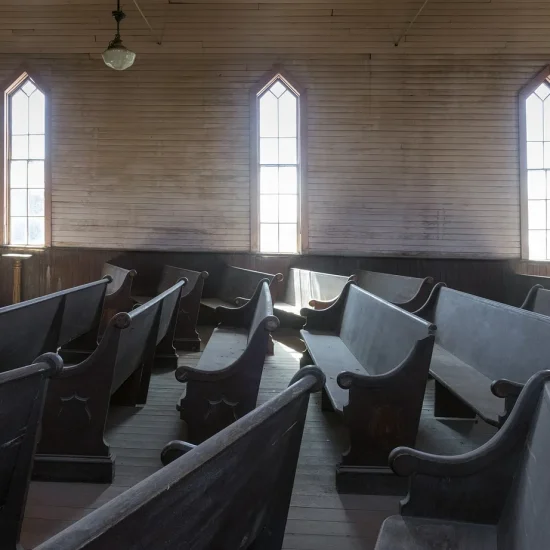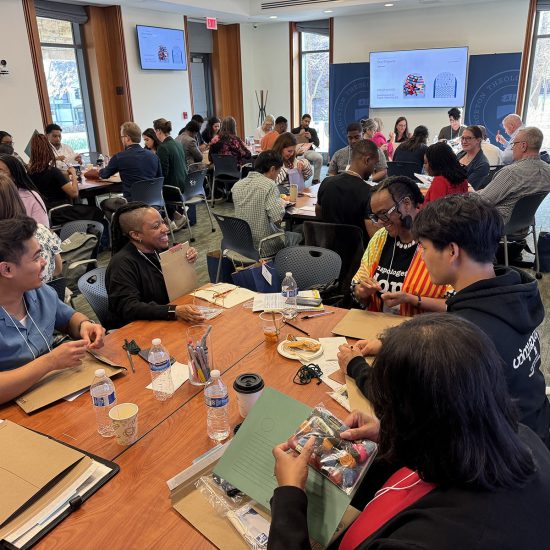
When I was younger, I was not a fan of the Apostle Paul. In my tradition, Paul was often used as a hero of the faith (which he is) who could do no wrong (which he could even at his own admission – see Romans 3:23 and 1 Timothy 1:5). He was elevated so highly in sermons and the classroom I wondered if church people ought to be called Pualians instead of Christians. Mostly, I just did not get Paul or the systematic way people tried to interpret his writings to me, and therefore he baffled me into annoyance.

Greg Mamula
Fortunately, I am no longer annoyed by Paul or his full canon of writings. Because I understand the importance of narrative and the different genres of scripture better I now deeply value his many letters to the churches in his network. I will always gravitate first to the Gospels about Jesus. But placing Paul in a proper perspective and place in the ongoing biblical narrative has given me an appreciation for his wise ability to connect Israel’s story to the resurrected and ascended Jesus. Because he was steeped in the Hebrew Bible and his cultural context, he was able to build theological, political, and social bridges to Jesus and the full canon in ways that continue to unfold for me as I study his letters more and more.
What I appreciate most about Paul is his love and gratitude for his friends, co-workers, and siblings in Christ within his ministry network. Paul mentions Priscilla and Aquila, Urbanus, Timothy, Titus, Epaphroditus, Clement, Jesus called Justus, Philemon, Mark, Aristarchus, Demas, and Luke just to name a few. In Romans 16 alone, Paul mentions some 29 individual people! It is with these people Paul shares the mission and ministry of church planting, teaching, letter distribution, and ongoing pastoral care.
I may still be growing in my appreciation for Paul’s theology, but after serving as the Associate Executive Minister for the American Baptist Churches of Nebraska for a decade, what I feel I understand most clearly about Paul is his love for his community network. Like Paul, I am so grateful for the massive network of support, encouragement, and partnership I have received from my denomination, mentors, and siblings in Christ.
But as our missional landscape continues to shift, will this be enough going forward?
This article is part of a series on the future of the church in which I am sharing six observations I think we need to focus on to be the faithful presence of Jesus over the next decade:
- Allow the full narrative of scripture to shape your holy imagination
- Learn to listen and respond well to your community
- Build more and better networks
- Recognize the gifts and talents of all people
- Invite people from isolation to inclusion
- Develop multiple revenue streams
Feel free to share with me your observations of what you see coming and where you feel the Spirit is leading.
Today we are focusing on building more and better networks.
Build more and better networks
Many of the institutions that give shape to our current ministry models continue to serve us well. They leverage financial resources and built great buildings. They facilitate large-scale programs and publish creative work in a variety of mediums. They manage health care systems and oversee food distribution. They train and equip clergy leaders and they navigate conflicts. They wisely invest retirement incomes and support missionaries around the world. Our denominations, mission societies, and para-church organizations are foundational launching pads of mission and ministry.

boris misevic / Unsplash
But we need more of them, lots more, if we are going to adequately respond to the pain points of our communities. We need smaller more specific groups who require fewer resources. We need them to partner together as a vast network of specialists. We need them to be agile so they can respond to specific needs in real-time. They need to be experts in their contexts, providing practical and theologically rich care in their time and place. When one group cannot help a particular need, it should have a strong network of partnerships they can joyfully refer people toward so they can receive the ministry care they need.
We need the leaders of such groups to humbly get along with one another and see each other as valuable partners in mission and ministry not competitors in a religious marketplace. We need them to value kingdom-building mindsets in partnership with others. These smaller ministries can be part of multiple networks so they can best collaborate for their contextual needs. In this way, these small more agile groups can serve as contextual first responder-type ministries. They will need to have multiple revenue streams and have ways of being invested in by the institutions with large investments and endowments that already exist. When deeper, longer care is needed these smaller agile groups can point people to the larger institutions that are experts in slower more established models.
I was at the American Baptist Women in Ministry “Radical. Redeemed. Ready.” conference in Green Lake, Wisconsin, a couple of weeks ago to support the women in ministry in our denomination. While there I interacted with all sorts of people representing the broader ABC family… my siblings, friends, and coworkers in Christ. During one of the breaks, I spoke with a fellow minister and we discussed the small differences in approaches to ministry partnerships based on experience and cohort generations. While much of what we discussed was hyperbolic and anecdotal we did seem to land on a possible conclusion.
We felt that the newest and developing leaders in the room had more elasticity in their ability to partner with others. So many of our mentors and eldest leaders have been shaped by trailblazing efforts and wounded by battles. They are alive, and most of them are filled to the brim with grace and love, but they are also covered in scar tissue. Scars from theological divisions that split denominations. Scars from culture wars that cannot be won, only survived. Scars from breaking glass ceilings and plotting new paths. Scars that prevent a full range of motion because scars cause rigidity. Scars that prevent moving forward and instead force people to reminisce.
But by their scars, we take warning and may yet find our healing preemptively. We stand on their shoulders. I would not be here as a pastor, regional executive, or follower of Jesus without them. I grieve at the pain they have endured. But even as my fellow minister and I looked around the room and we thought about the larger American church context we were filled with hope at what will come next for us all. We know it will require us to do things a little differently. It will require us to lean into our elasticity. It will require us to interact and network in new ways that do not create wounds or cause scar tissue, for if we do that we will lose our flexibility and agility to respond to the Holy Spirit.
Like Paul, I could name hundreds of people and organizations who are part of my ministry network. Like Paul, I am grateful for each one in their own way. I am looking forward to all the new ministry partnerships I have yet to make or even dare to dream about.
“May the grace of the Lord Jesus Christ, the love of God, and the fellowship of the Holy Spirit be with us all.” –2 Corinthians 13:14
Rev. Dr. Greg Mamula is the Associate Executive Minister for the American Baptist Churches of Nebraska, and a contributing writer for Word&Way. He is the author of Table Life: An Invitation to Everyday Discipleship, published by Judson Press in print and e-reader versions from online distributors including Amazon. To learn more information visit www.table-life.org.






